
Alotau: Gateway to Papua New Guinea's Unspoiled Beauty
Alotau, the capital of Milne Bay Province in Papua New Guinea, is a true gem for those seeking natural beauty and unique cultural experiences. Nestled on the southeastern tip of the mainland, this charming town is renowned for its breathtaking landscapes, rich history, and vibrant local culture. Visitors to Alotau can immerse themselves in the stunning natural surroundings, from pristine beaches to lush rainforests. The nearby Tawali Resort offers spectacular diving and snorkeling opportunities, where you can explore colorful coral reefs and encounter a variety of marine life. For those who prefer land-based activities, the surrounding hills and trails provide excellent hiking and bird-watching experiences. Alotau is also steeped in history, with significant World War II sites such as the Battle of Milne Bay Memorial. The town itself hosts the annual Milne Bay Canoe and Kundu Festival, a vibrant celebration of the region’s maritime culture with traditional canoe racing, drumming, and dancing. Local markets in Alotau are a must-visit, offering fresh produce, handmade crafts, and the chance to interact with friendly locals. The town’s relaxed pace and welcoming atmosphere make it an ideal destination for travelers looking to experience the authentic charm of Papua New Guinea.
Local tips in Alotau
- Visit during the Milne Bay Canoe and Kundu Festival to experience traditional canoe racing and cultural performances.
- Bring cash, as ATMs and card payment facilities can be limited in Alotau.
- Hire a local guide for hiking or exploring World War II sites to gain deeper insights and ensure safety.
- Pack reef-safe sunscreen and insect repellent for outdoor activities.
- Respect local customs and dress modestly, especially when visiting villages and cultural sites.
Alotau: Gateway to Papua New Guinea's Unspoiled Beauty
Alotau, the capital of Milne Bay Province in Papua New Guinea, is a true gem for those seeking natural beauty and unique cultural experiences. Nestled on the southeastern tip of the mainland, this charming town is renowned for its breathtaking landscapes, rich history, and vibrant local culture. Visitors to Alotau can immerse themselves in the stunning natural surroundings, from pristine beaches to lush rainforests. The nearby Tawali Resort offers spectacular diving and snorkeling opportunities, where you can explore colorful coral reefs and encounter a variety of marine life. For those who prefer land-based activities, the surrounding hills and trails provide excellent hiking and bird-watching experiences. Alotau is also steeped in history, with significant World War II sites such as the Battle of Milne Bay Memorial. The town itself hosts the annual Milne Bay Canoe and Kundu Festival, a vibrant celebration of the region’s maritime culture with traditional canoe racing, drumming, and dancing. Local markets in Alotau are a must-visit, offering fresh produce, handmade crafts, and the chance to interact with friendly locals. The town’s relaxed pace and welcoming atmosphere make it an ideal destination for travelers looking to experience the authentic charm of Papua New Guinea.
When is the best time to go to Alotau?
Iconic landmarks you can’t miss
Alotau International Hotel
Discover the charm of Alotau at Alotau International Hotel, your perfect base for exploring the stunning Milne Bay Province.
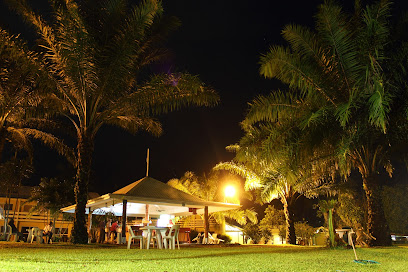
Masurina Lodge
Discover the tranquil beauty of Masurina Lodge in Alotau, a gateway to Papua New Guinea's stunning landscapes and rich cultural experiences.
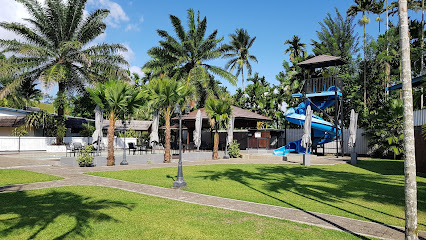
Driftwood Resort
Experience the beauty and tranquility of Driftwood Resort in Alotau, Papua New Guinea – a perfect blend of relaxation, adventure, and local culture.
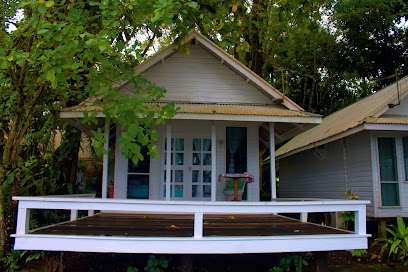
Alotau Waterfront Lodge
Discover comfort and stunning waterfront views at Alotau Waterfront Lodge in Papua New Guinea's picturesque Milne Bay Province.

Alotau Town Main Market
Discover the vibrant culture and flavors of Papua New Guinea at Alotau Town Main Market, a must-visit destination for every traveler.
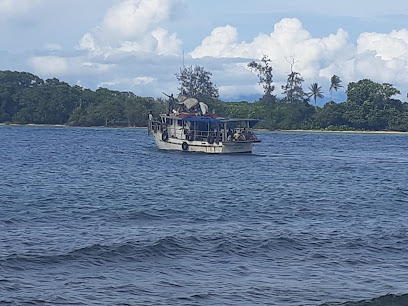
Alotau War Memorial Park
Explore the serene Alotau War Memorial Park, a heartfelt tribute to World War II heroes, set in the lush landscapes of Papua New Guinea's Milne Bay Province.
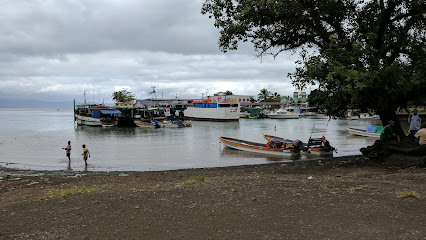
Napatana Lodge
Discover the tranquility and beauty of Alotau at Napatana Lodge, your perfect getaway in Milne Bay Province, Papua New Guinea.

Port of Alotau
Experience the beauty and culture of Papua New Guinea at the stunning Port of Alotau, your gateway to adventure and relaxation.
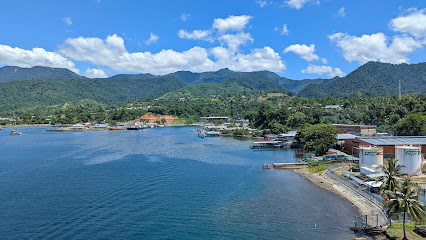
Hiwe Hiwe Lodge
Experience the serene beauty of Hiwe Hiwe Lodge in Alotau, where nature meets comfort in the heart of Milne Bay Province.
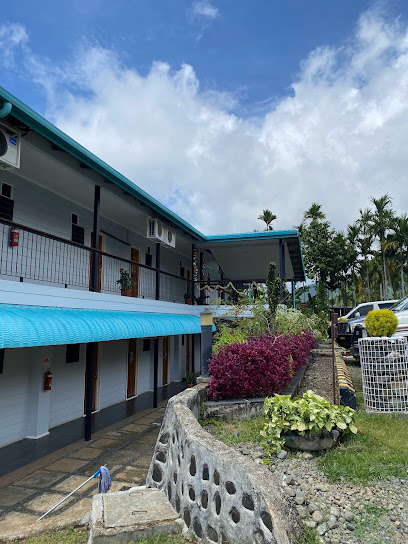
Massim Museum
Explore the Massim Museum in Alotau, where the rich heritage and artistic legacy of Papua New Guinea come to life through captivating exhibits.
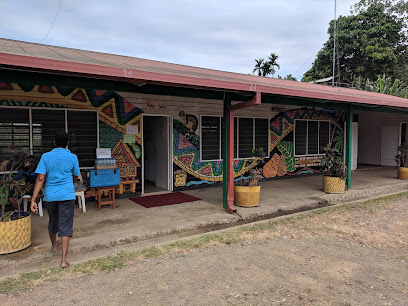
Alotau Tours
Explore the breathtaking beauty and vibrant culture of Milne Bay Province with Alotau Tours, your gateway to adventure in Papua New Guinea.
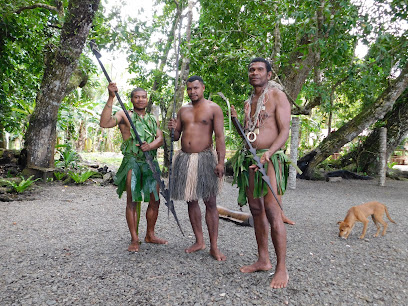
Alotau, Milne Bay Province
Experience the serene beauty and vibrant culture of Alotau in Milne Bay Province, a hidden gem in Papua New Guinea for adventure seekers.
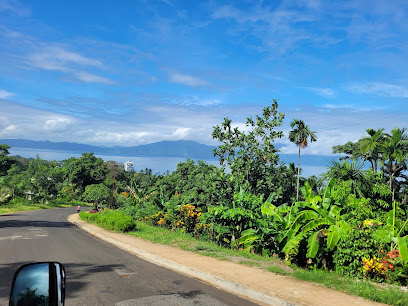
Kwalia Adventure & Expeditions PNG
Explore the breathtaking landscapes and rich culture of Papua New Guinea at Kwalia Adventure & Expeditions - a haven for adventure seekers and nature lovers.
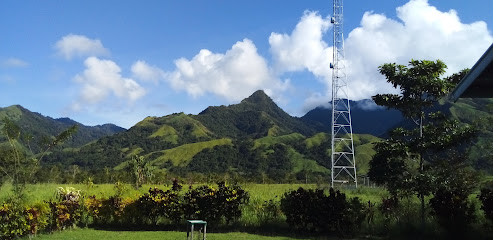
Alotau Urban Local Level Government
Discover the essence of local governance at Alotau Urban Local Level Government in Milne Bay Province, an enriching experience for culturally curious travelers.
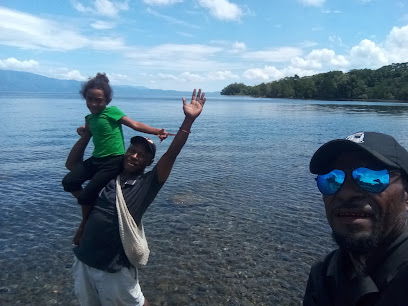
Historical Bay tours
Discover the historical treasures of Alotau with Historical Bay Tours, where culture and stunning nature converge in Papua New Guinea's Milne Bay Province.
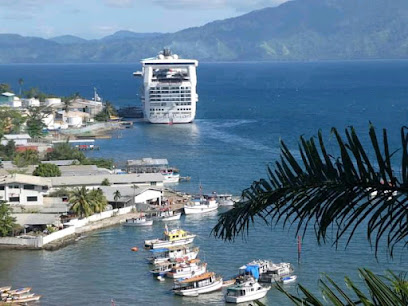
Unmissable attractions to see
Alotau War Memorial Park
Explore Alotau War Memorial Park, a serene tribute to wartime heroes in the lush landscapes of Milne Bay Province.
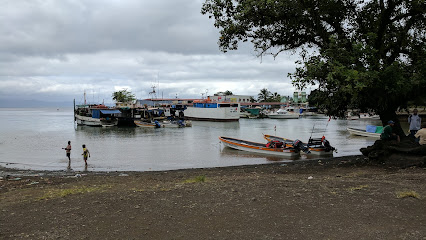
Kwalia Adventure & Expeditions PNG
Discover the breathtaking beauty and vibrant culture of Papua New Guinea at Kwalia Adventure & Expeditions, your gateway to unforgettable adventures.
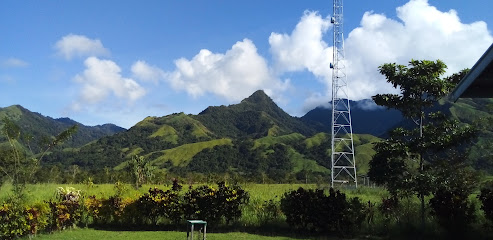
Dalai Heights Lookout Point
Experience the stunning panoramic views at Dalai Heights Lookout Point, the perfect destination for nature lovers visiting Alotau, Papua New Guinea.
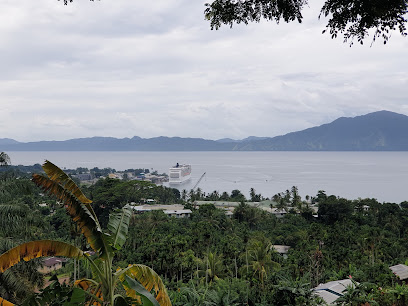
Village dance group
Discover the vibrant traditions of Papua New Guinea at Alotau's Village Dance Group, where culture and rhythm come alive in stunning performances.
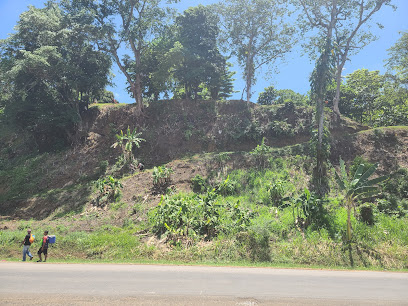
Alice Wedega Park
Experience the serene beauty of Alice Wedega Park in Alotau, where lush landscapes and tranquility await every visitor.
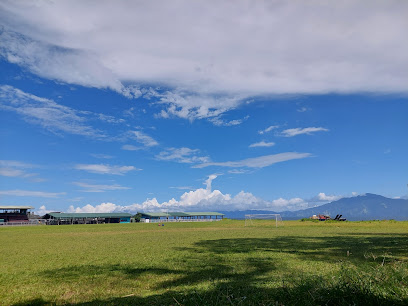
Sanderson Bay Beach Front
Experience the serene beauty of Sanderson Bay Beach Front in Alotau, a hidden gem in Milne Bay Province offering tranquility and breathtaking views.
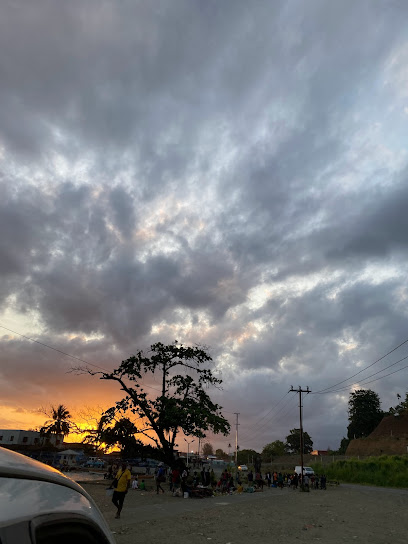
Aikiluma Tours
Discover the beauty and culture of Papua New Guinea with Aikiluma Tours in Alotau, your ultimate travel adventure awaits.
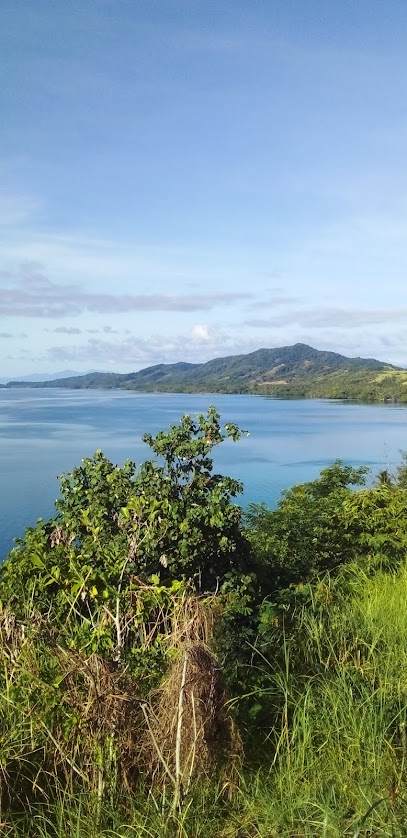
ROCKY BAY VILLAGE TOURS, ALOTAU, PAPUA NEW GUINEA
Explore the beauty and culture of Papua New Guinea with Rocky Bay Village Tours in Alotau, a gateway to unforgettable experiences.
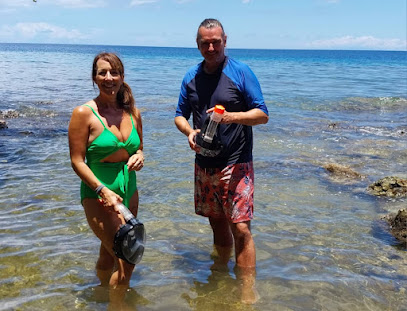
Mona'nauna Beach Retreat
Experience the enchanting beauty of Mona'nauna Beach Retreat, where culture, relaxation, and adventure meet in stunning Alotau, Milne Bay Province.

Essential places to dine
Alotau International Hotel
Experience comfort and cultural richness at Alotau International Hotel - your gateway to exploring Milne Bay's stunning landscapes.
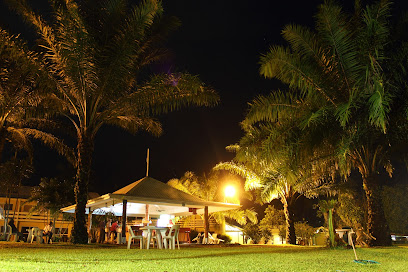
Masurina Lodge
Experience tranquility at Masurina Lodge in Alotau - your gateway to adventure in Milne Bay's stunning natural beauty.
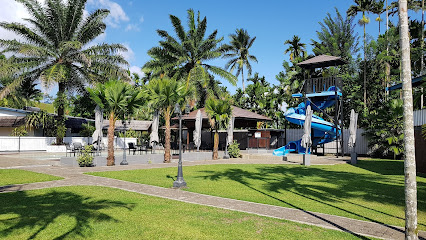
Driftwood Resort
Discover tranquility and adventure at Driftwood Resort in Milne Bay Province - your ideal escape in Papua New Guinea.
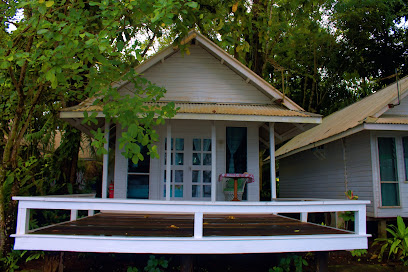
Alotau Waterfront Lodge
Discover tranquility and adventure at Alotau Waterfront Lodge, your gateway to the natural beauty and culture of Milne Bay Province.

Napatana Lodge
Discover tranquility at Napatana Lodge in Alotau - your gateway to exploring the natural wonders and cultural richness of Milne Bay Province.

Port of Alotau
Explore the stunning natural beauty and rich culture at Port of Alotau - your gateway to Milne Bay's treasures.
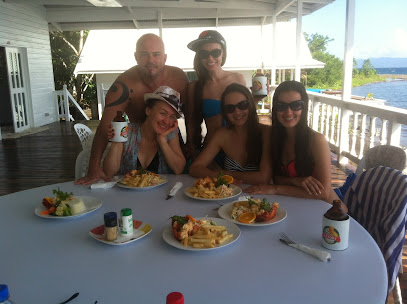
Alotau Commercial Center
Explore Alotau Commercial Center: A vibrant marketplace showcasing local culture, cuisine, and crafts in Milne Bay Province.
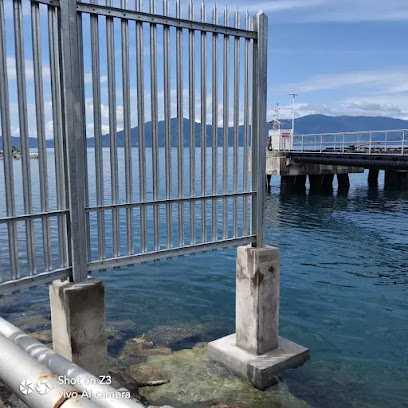
Alotau Tours
Explore Alotau's stunning landscapes and rich culture through unforgettable sightseeing tours in Papua New Guinea's Milne Bay Province.
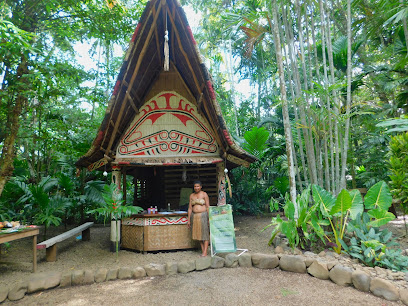
Alotau, Milne Bay Province
Explore Alotau's breathtaking landscapes and rich cultural heritage in Milne Bay Province – a hidden gem of Papua New Guinea.
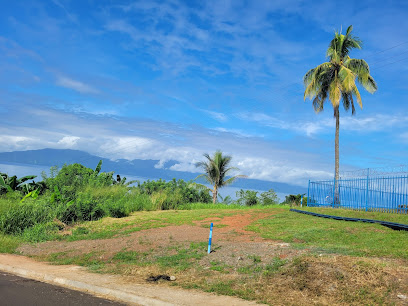
Kwalia Adventure & Expeditions PNG
Explore breathtaking landscapes and immerse yourself in local culture at Kwalia Adventure & Expeditions PNG - your gateway to unforgettable adventures.
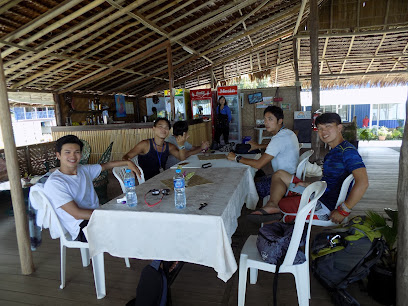
Hilltop Catering
Experience authentic Papua New Guinean cuisine at Hilltop Catering – where local flavors meet stunning scenery.

Alotau Top town
Experience authentic Papua New Guinean cuisine at Alotau Top Town – where local flavors meet international flair in a welcoming setting.
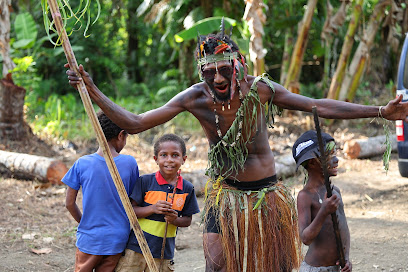
King Julian's Kitchen
Discover delicious fast food at King Julian's Kitchen in Milne Bay – where local charm meets quick culinary delights.

The Boyz Fast Food
Experience delicious fast food with a local twist at The Boyz Fast Food in Alotau's beautiful Milne Bay Province.

Daisy's Cake and food Studio
Discover delicious fast food and delightful cakes at Daisy's Cake and Food Studio in Alotau - a true taste of Papua New Guinea.

Markets, malls and hidden boutiques
Alotau Town Main Market
Experience the vibrant essence of Alotau at the Town Main Market, where local culture and flavors come alive in Milne Bay Province.
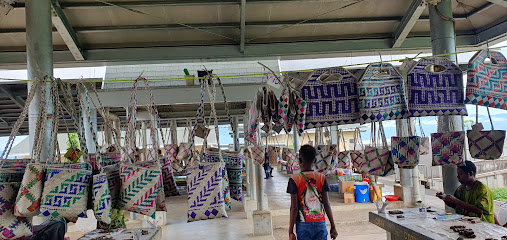
Alotau Bakery Ltd
Experience the authentic taste of Papua New Guinea at Alotau Bakery Ltd, where every bite tells a story of local flavors and traditions.
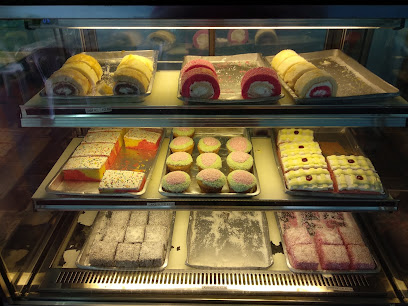
Alotau Enterprises Alotau Supermarket
Explore Alotau Enterprises Supermarket for local flavors and everyday essentials in the heart of Alotau, Milne Bay Province.
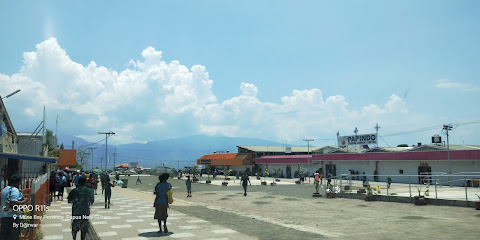
Boss Mei Bakery, Sanderson Bay, Alotau
Experience the taste of Alotau at Boss Mei Bakery, where every bite offers a delightful journey through local flavors and freshly baked delights.
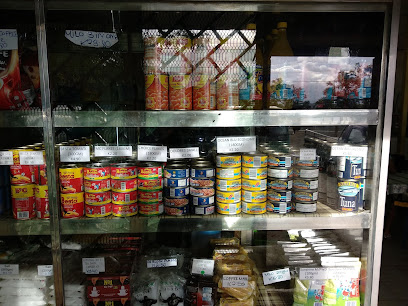
Papindo Supermarket & Department Store
Discover the vibrant shopping scene at Papindo Supermarket & Department Store, where local culture meets convenience in Alotau, Milne Bay Province.
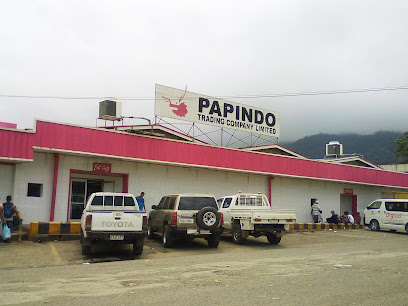
Cheongs Supermarket Limited
Explore local groceries and flavors at Cheongs Supermarket Limited in Milne Bay, a delightful stop for tourists seeking authentic Papua New Guinea products.
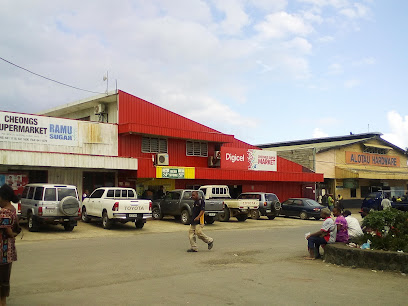
SANDERSON BAY WHOLESALE AND RETAIL
Explore the vibrant offerings of Sanderson Bay Wholesale and Retail, your go-to grocery store in Alotau for fresh produce and local goods.
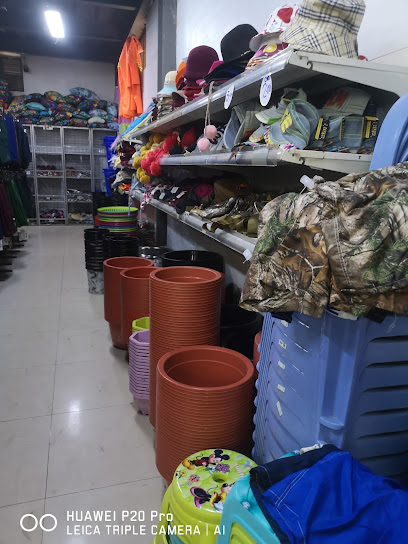
Masurina Business Centre
Discover shopping and local culture at Masurina Business Centre in Alotau, a vibrant hub for tourists and locals in Milne Bay Province.
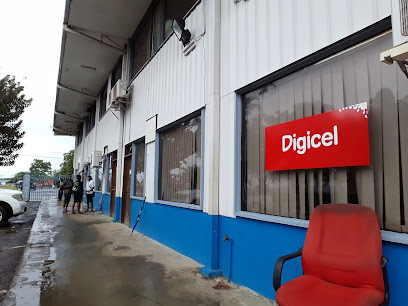
Able Home & Office PNG - Alotau Branch
Explore the best in technology at Able Home & Office PNG, Alotau's leading computer store for quality products and exceptional service.

JIT Trading
Explore Alotau's vibrant local grocery store, JIT Trading, for fresh produce and Delicacies that reflect the heart of Milne Bay Province.
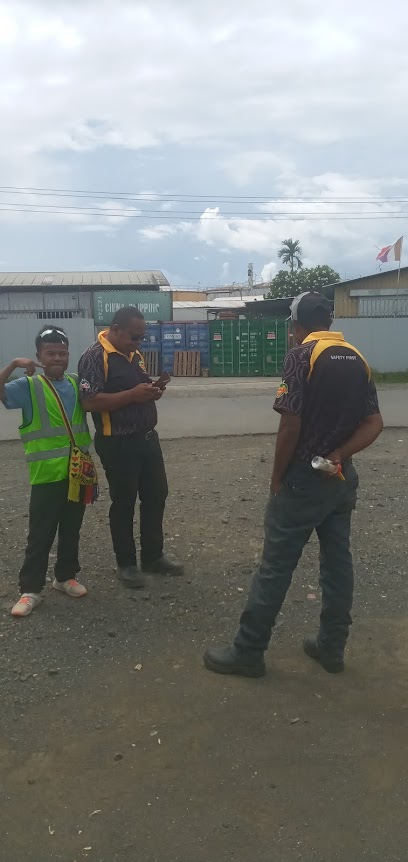
Milne Bay Hardware
Explore Milne Bay Hardware in Alotau for a unique shopping experience with a diverse range of tools, supplies, and local products.
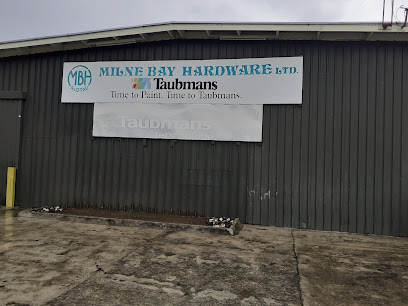
Alotau Informal Market
Explore Alotau Informal Market: A vibrant flea market showcasing local culture, crafts, and delicious flavors in Milne Bay Province.
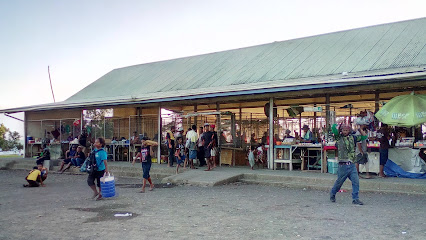
Pick & Pay
Explore the diverse offerings at Pick & Pay, a prime shopping destination in Alotau, Milne Bay Province, catering to the needs of travelers and locals.
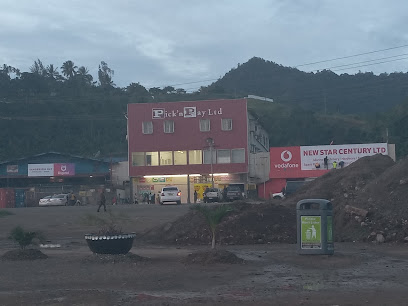
Milne Bay Commercial Center
Explore the Milne Bay Commercial Center in Alotau for unique home goods and experience the vibrant local culture of Papua New Guinea.

Bake Bites by GM
Experience the exquisite flavors of Bake Bites by GM, Alotau's premier cake shop, where every bite tells a story of local craftsmanship and sweetness.

Essential bars & hidden hideouts
Alotau International Hotel
Experience comfort and breathtaking views at Alotau International Hotel, your ideal base for exploring the stunning Milne Bay Province.
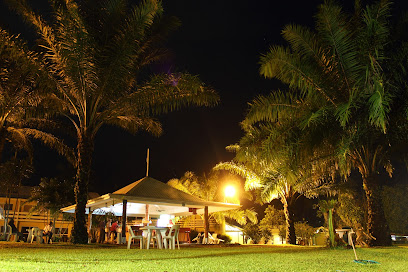
Masurina Lodge
Discover the tranquility and cultural richness of Alotau at Masurina Lodge, your perfect getaway in Milne Bay Province.
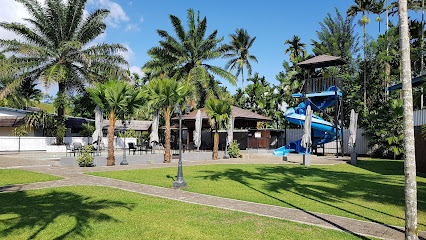
Alotau Waterfront Lodge
Discover paradise at Alotau Waterfront Lodge, where breathtaking views and unique experiences await in Papua New Guinea's Milne Bay.

Port of Alotau
Uncover the beauty and culture of the Port of Alotau, a serene marina in Milne Bay Province, Papua New Guinea, perfect for adventure seekers and culture enthusiasts alike.
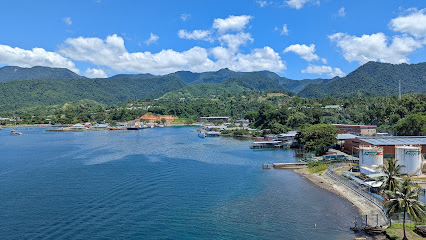
Alotau Commercial Center
Discover the Alotau Commercial Center, your gateway to the vibrant culture and stunning landscapes of Milne Bay Province.
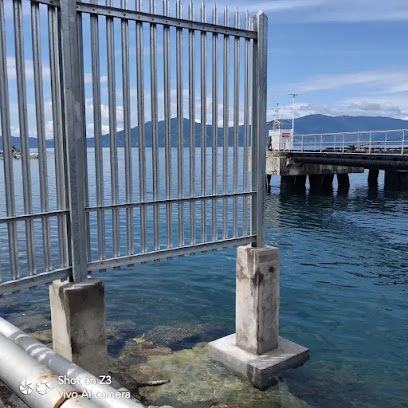
Alotau Tours
Discover Alotau's breathtaking landscapes and rich cultural heritage with Alotau Tours, your gateway to unforgettable adventures in Papua New Guinea.
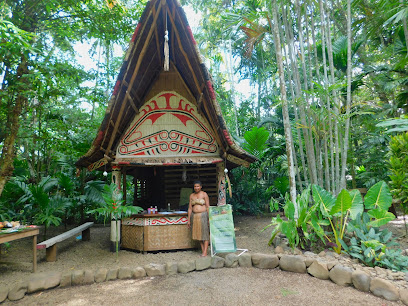
Kwalia Adventure & Expeditions PNG
Discover the natural wonders and cultural richness of Papua New Guinea at Kwalia Adventure & Expeditions, your gateway to unforgettable experiences.
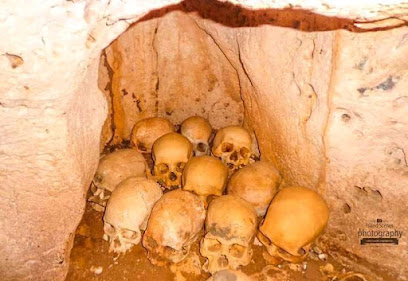
Cameron Club
Experience the vibrant atmosphere of Cameron Club in Alotau, where tropical drinks and local culture blend for an unforgettable evening.
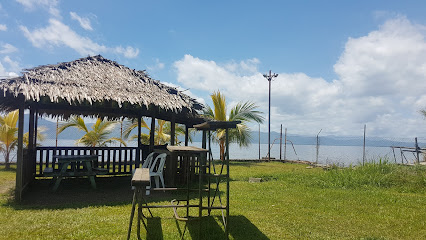
Hilltop Catering
Discover the delicious fusion of local and international flavors at Hilltop Catering, a must-visit dining experience in Alotau, Milne Bay Province.

Alotau Top town
Discover the flavors of Papua New Guinea at Alotau Top Town, a culinary gem in Milne Bay Province offering authentic local dishes and unmatched hospitality.
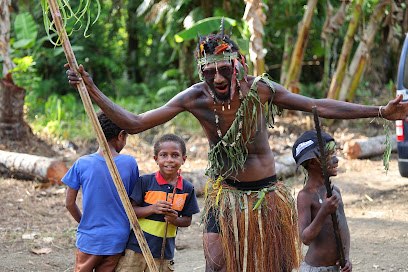
King Julian's Kitchen
Experience the vibrant flavors of Papua New Guinea at King Julian's Kitchen, a fast food gem in Milne Bay Province.

Senina food box
Experience the authentic flavors of Papua New Guinea at Senina Food Box in Alotau, Milne Bay Province, where local ingredients create memorable dishes.
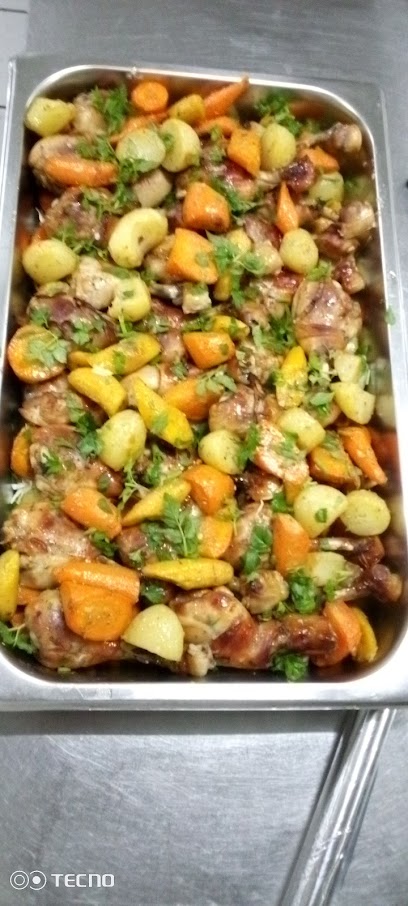
The Boyz Fast Food
Discover the taste of local cuisine at The Boyz Fast Food in Alotau, a delightful fast food experience in the heart of Milne Bay Province.

Wame' BBQ Market
Experience the authentic taste of Alotau at Wame' BBQ Market, where delicious local BBQ dishes meet vibrant culture in a stunning coastal setting.

Local Phrases
-
- HelloKam na
[Kam na] - GoodbyeGude
[Gude] - YesYes
[Yes] - NoNogat
[Nogat] - Please/You're welcomePlis
[Plis] - Thank youTangkyu
[Tangkyu] - Excuse me/SorrySori
[Sori] - How are you?Yu stap gutpela?
[Yu stap gutpela?] - Fine. And you?Gutpela. Na yu?
[Gutpela. Na yu?] - Do you speak English?Yu save long toktok Inglish?
[Yu save long toktok Inglish?] - I don't understandMi no save
[Mi no save]
- HelloKam na
-
- I'd like to see the menu, pleaseMi laik lukim menu, plis
[Mi laik lukim menu, plis] - I don't eat meatMi no kaik kaukau
[Mi no kaik kaukau] - Cheers!Cheers!
[Cheers!] - I would like to pay, pleaseMi laik baim, plis
[Mi laik baim, plis]
- I'd like to see the menu, pleaseMi laik lukim menu, plis
-
- Help!Halivim mi!
[Halivim mi!] - Go away!Lusim mi!
[Lusim mi!] - Call the Police!Kolim Polis!
[Kolim Polis!] - Call a doctor!Kolim dokta!
[Kolim dokta!] - I'm lostMi lusim
[Mi lusim] - I'm illMi sik
[Mi sik]
- Help!Halivim mi!
-
- I'd like to buy...Mi laik baim...
[Mi laik baim...] - I'm just lookingMi laik lukim tasol
[Mi laik lukim tasol] - How much is it?Em i stap long hamas?
[Em i stap long hamas?] - That's too expensiveDispela i stap long hamas tumas
[Dispela i stap long hamas tumas] - Can you lower the price?Yu inap kamapim prais?
[Yu inap kamapim prais?]
- I'd like to buy...Mi laik baim...
-
- What time is it?Em i kilim tasol?
[Em i kilim tasol?] - It's one o'clockEm i wan tasol
[Em i wan tasol] - Half past (10)Long hap pastim ten
[Long hap pastim ten] - MorningMorning
[Morning] - AfternoonApinun
[Apinun] - EveningKapul
[Kapul] - YesterdayIstap
[Istap] - TodayNau
[Nau] - TomorrowTumoro
[Tumoro] - 1Wan
[Wan] - 2Tu
[Tu] - 3Tri
[Tri] - 4Fo
[Fo] - 5Faiv
[Faiv] - 6Sikis
[Sikis] - 7Seven
[Seven] - 8Eit
[Eit] - 9Nain
[Nain] - 10Ten
[Ten]
- What time is it?Em i kilim tasol?
-
- Where's a/the...?Em i stap we...?
[Em i stap we...?] - What's the address?Em i stap long adres?
[Em i stap long adres?] - Can you show me (on the map)?Yu inap soim mi long map?
[Yu inap soim mi long map?] - When's the next (bus)?Kilim taim bai nambawan
[Kilim taim bai nambawan] - A ticket (to ....)Wan tikit long ...
[Wan tikit long ...]
- Where's a/the...?Em i stap we...?
History of Alotau
-
Before European contact, the area now known as Alotau was inhabited by the indigenous Melanesian people. These communities were organized into small, autonomous villages that practiced subsistence agriculture, fishing, and hunting. The rich cultural heritage included traditional dances, rituals, and oral storytelling, which were passed down through generations.
-
In the late 19th century, European explorers and missionaries arrived in the Milne Bay Province, where Alotau is located. The British established a protectorate over Papua, which included the Milne Bay area, in 1884. This period saw the introduction of Christianity, Western education, and new trade practices, significantly impacting the local way of life.
-
One of the most significant historical events in Alotau's history is the Battle of Milne Bay during World War II. From August 25 to September 7, 1942, Allied forces, including Australian and American troops, successfully defended the area against Japanese invasion. This battle marked the first major defeat of Japanese forces on land during the Pacific War. Today, remnants of the war, such as old airstrips and memorials, can still be found around Alotau.
-
After World War II, Alotau began to develop more rapidly. The town was officially established in the 1960s to replace Samarai as the provincial capital due to its strategic location and potential for growth. Infrastructure such as roads, schools, and healthcare facilities were built, facilitating the town's transformation into a bustling administrative and commercial center.
-
Alotau is renowned for its vibrant cultural heritage, which is celebrated through various festivals and events. The annual Kenu and Kundu Festival is a highlight, showcasing traditional canoe races, dance performances, and music. This event attracts locals and tourists alike, offering a unique insight into the region's rich cultural tapestry.
-
Today, Alotau is a blend of traditional culture and modern development. The town serves as a gateway to the stunning natural beauty of Milne Bay Province, including its pristine beaches, coral reefs, and lush rainforests. Alotau continues to preserve its historical legacy while embracing progress and tourism, making it a captivating destination for visitors.
Alotau Essentials
-
Alotau can be reached primarily by air. The nearest airport is Gurney Airport (GUR), located about 12 kilometers from Alotau. Air Niugini and PNG Air operate regular flights to and from Port Moresby, the capital of Papua New Guinea. From the airport, you can take a taxi or arrange for a hotel shuttle to reach the town center. Alternatively, you can arrive by sea via cruise ships that dock at the Alotau International Wharf.
-
Within Alotau, transportation options include taxis, minibuses, and rental cars. Taxis are widely available and can be hailed from the street or booked through your hotel. Minibuses, known locally as PMVs (Public Motor Vehicles), are a more economical option for getting around and connecting to nearby villages. Rental cars are also available for those who prefer to explore at their own pace. Keep in mind that driving is on the left side of the road.
-
The official currency in Papua New Guinea is the Papua New Guinean Kina (PGK). Credit cards are accepted in most hotels, restaurants, and larger shops, but it is advisable to carry some cash, especially for smaller establishments and markets. ATMs are available in Alotau, but it is a good idea to have some Kina on hand before arriving. Currency exchange services are also available at banks and major hotels.
-
Alotau is generally considered safe for tourists, but like any travel destination, it is important to exercise caution. Avoid walking alone at night, particularly in poorly lit areas. Be aware of your surroundings and keep an eye on your belongings in crowded places such as markets. While serious crime is not a common issue, petty theft can occur, so it is best to stay vigilant.
-
In case of an emergency, dial 111 for police assistance or 112 for medical emergencies. The local police station is located in the town center, and the Alotau Provincial Hospital provides medical services. It is recommended to have travel insurance that covers medical emergencies. For minor health issues, pharmacies are available where you can purchase over-the-counter medications.
-
Fashion: Do dress modestly, especially when visiting villages or religious sites. Avoid overly revealing clothing. Religion: Do respect local customs and traditions. Always ask for permission before taking photos of people or sacred sites. Public Transport: Do be polite and patient when using PMVs. They can be crowded and may not run on a strict schedule. Greetings: Do greet people with a smile and a friendly 'hello.' A handshake is also acceptable. Eating & Drinking: Do try local foods and delicacies. Don’t refuse food or drink offered by locals, as it can be seen as impolite.
-
To experience Alotau like a local, visit the Alotau Market where you can buy fresh produce, seafood, and traditional crafts. Engage with the locals, who are known for their friendliness and hospitality. Don’t miss the opportunity to attend a traditional sing-sing performance, where you can witness traditional music, dance, and costumes. For a unique experience, take a boat tour to explore the nearby islands and learn about the local marine life.
Trending Landmark in Alotau
-
Alotau International Hotel
-
Masurina Lodge
-
Driftwood Resort
-
Alotau Waterfront Lodge
-
Alotau Town Main Market
-
Alotau War Memorial Park
-
Napatana Lodge
-
Port of Alotau
-
Hiwe Hiwe Lodge
-
Massim Museum
-
Alotau Tours
-
Alotau, Milne Bay Province
-
Kwalia Adventure & Expeditions PNG
-
Alotau Urban Local Level Government
-
Historical Bay tours
Nearby Cities to Alotau
-
Things To Do in Port Moresby
-
Things To Do in Kimbe
-
Things To Do in Lae
-
Things To Do in Kokopo
-
Things To Do in Rabaul
-
Things To Do in Arawa
-
Things To Do in Goroka
-
Things To Do in Gizo
-
Things To Do in Madang
-
Things To Do in Taro Island
-
Things To Do in Buka
-
Things To Do in Mount Hagen
-
Things To Do in Kavieng
-
Things To Do in Port Douglas
-
Things To Do in Cairns





